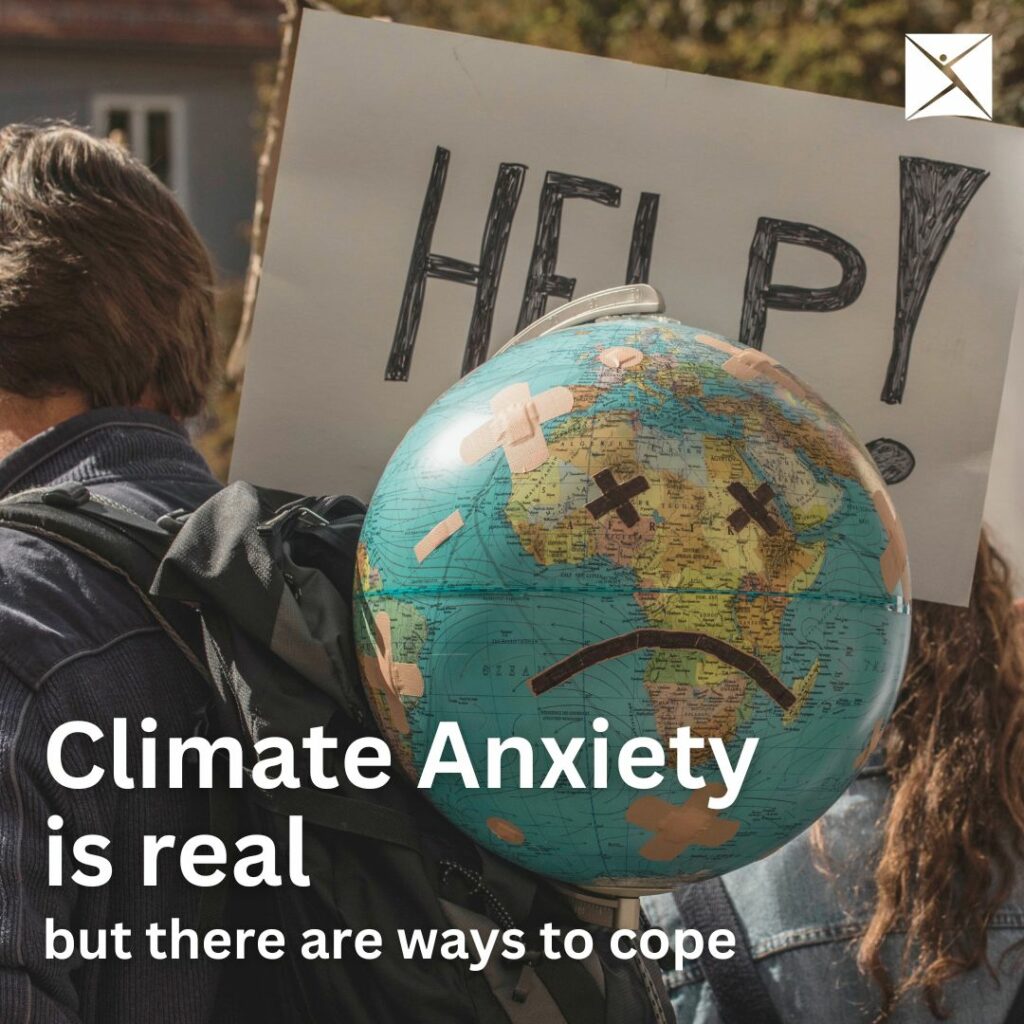Menu
Close

Understanding and Coping with Climate Anxiety
22 April 2024
The growing Climate Crisis is having a profound impact on people’s mental health in the form of climate anxiety. Each day, more stories emerge about the effects of climate change. You are not alone if you struggle with anger, frustration, hopelessness or fear when being inundated by these messages.
A recent worldwide survey of more than 10,000 people aged 16-25 found that fear and uncertainty caused by the changing climate is a growing concern.[1]
Of those surveyed:
84% were moderately worried about climate change
59% were extremely worried
45% said that feelings about climate change negatively impacted their ability to function daily.
However, it is not only young people who are impacted by climate anxiety. A 2022 survey found that 32% of American adults were anxious about climate change.[2]
One of the most significant factors in climate anxiety is a feeling of helplessness. Here are a few strategies for coping.
- Get out and enjoy nature: Taking time to enjoy the beauty of nature is an excellent way to ease anxiety and remember why we can’t lose hope.
- Stop doom scrolling: If you find yourself triggered by the news and social media constantly reporting negatively on climate change, take a break a break from them.
- Seek out positive news: Although there is still a lot to do in the fight against climate change, there are many positive news stories from all over the world. Check out Good News Network and Positive News.
- Get involved: Volunteer with local organizations that work towards a greener future, like Green Clean Beautiful, Trees for Nipissing, etc. Join environmental groups and protests; working together provides purpose and hope. If you can’t find any groups to join, make one!
- Do what you can: Small changes such as reducing plastic use, being more carbon conscious when travelling or eating less meat can give you a greater sense of control.
- Reach out: If you need additional support CMHA North Bay and District is here for you.
For more tips: Experts tell us things big and small we can do to help reduce climate change | CBC Life
The effects of climate change are real and can be devastating. The feeling of anxiety that comes with an uncertain future can be normal, but if you find yourself being overwhelmed, try the above actions.
Works Cited
Caroline Hickman, E. M. (2021, December). Climate anxiety in children and young people and their beliefs about governement responses to climate change: a global survey. Lancet Planet Health, Vol. 5, e863.
Climate Anxiety . (2024). Retrieved from Psychology Today: https://www.psychologytoday.com/us/basics/climate-anxiety
